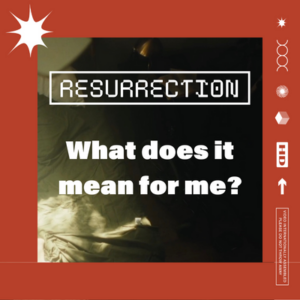
In the film Supernatural, Cody experiences the death of an older friend, and an unusual experience at his friend’s wake causes him to reconsider miracles. The biggest miracle of all, Cody decides, is the resurrection of Jesus Christ from the dead. “If that really happened,” he wonders, “what does that mean for me?”
When someone we love dies, being apart from them is painful. The idea that we might be separated from them forever is even more painful. We don’t just long to know that they are at peace somewhere, or free from suffering. We long to hear them talk and laugh, to hug them, to be in their physical presence once again. The resurrection of Jesus means that those of us who put our faith in him can reasonably believe that our bodies will be resurrected like his. God’s people are promised a kind of bodily existence beyond physical death—one that is familiar but “new and improved.”
How does that work? We say that someone who dies in Christ “goes to be with the Lord,” and they do. Somehow, in a way we can’t completely comprehend or describe, they are immediately transported into God’s presence. Jesus told the dying thief on the cross next to his who professed belief in him, “Today you will be with me in paradise.”[1] The apostle Paul assured his believing friends in Corinth that “to be absent from the body is to be present with the Lord.”[2] The part of us that is eternal is with God at death. But our bodies are not. They aren’t yet fit for eternity. They need transforming. God did this for Jesus, and he promises to do it for us. Jesus’ resurrection body was, like before, able to reach and embrace his friends, eat food, and be recognized (although not always instantly in some cases). But it could also move through physical barriers, be quickly transported, and rise from the earth.
This is how Paul describes what will happen when our souls and our resurrected bodies are united at Christ’s return:
I tell you this, brothers: flesh and blood cannot inherit the kingdom of God, nor does the perishable inherit the imperishable. Behold! I tell you a mystery. We shall not all sleep, but we shall all be changed,in a moment, in the twinkling of an eye, at the last trumpet. For the trumpet will sound, and the dead will be raised imperishable, and we shall be changed. For this perishable body must put on the imperishable, and this mortal body must put on immortality.[3]
“Jesus,” says theologian N. T. Wright, “is both the model for the Christian’s future body and the means by which it comes about.”[4]
[1] Luke 23: 43 [2] 2 Corinthians 5:8 [3] 1 Corinthians 15: 50-52 [4] Surprised by Hope: Rethinking Heaven, the Resurrection, and the Mission of the Church, by N. T. Wright (HarperOne, 2008), p. 149.
Romans 8:9-11 “You, however, are not in the realm of the flesh but are in the realm of the Spirit, if indeed the Spirit of God lives in you. And if anyone does not have the Spirit of Christ, they do not belong to Christ. But if Christ is in you, then even though your body is subject to death because of sin, the Spirit gives life because of righteousness. And if the Spirit of him who raised Jesus from the dead is living in you, he who raised Christ from the dead will also give life to your mortal bodies because of his Spirit who lives in you.”
1 Peter 1:3 “Praise be to the God and Father of our Lord Jesus Christ! In his great mercy he has given us new birth into a living hope through the resurrection of Jesus Christ from the dead.”